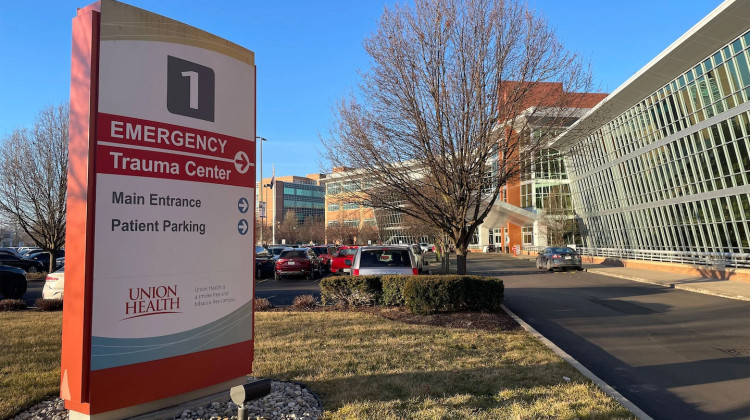
Earlier this month, Allen County announced the establishment of a syringe services program.
lyd_f /flickr.com/photos/30317380@N08/Since 2015, Indiana counties have established syringe-exchange programs with the hopes of curbing the spread of HIV and hepatitis.
The latest county to establish such a service — Allen County — has decided to call the program something different, a move other counties in Indiana are considering as well.
The Indiana bill legalizing needle exchanges refers to the services as syringe exchange programs, and most counties’ terminology has followed suit. But earlier this month, Allen County announced the establishment of a syringe services program.
Even though the name is different, the offerings are similar to the other programs: clean needles for drug users, as well as HIV testing and medical referrals.
The term “syringe services program” isn’t necessarily consistent with Indiana’s conventions, but it does line up with terminology used by the federal government, the Centers for Disease Control and Prevention.
According to John Brooks, senior medical officer at the center’s National Center for HIV/AIDS, Viral Hepatitis, STD and TB Prevention, says the CDC has been using the term “syringe services program” consistently since at least 2012.
“The NCHHSTP prefers to use the descriptor ‘syringe services program’ to describe a public health intervention to improve the health of people who inject drugs,” Brown said in an email. By this logic, all exchanges could be considered a syringe services program.
Other Indiana health departments which have already adopted or are considering adopting exchanges are considering new names for the programs, including Monroe and Tippecanoe counties.
Kathy Hewitt coordinates Monroe County’s program. She says the county board of health has considered a new name to better reflect the services rendered.
“There’s some confusion in the community where they think of the exchange as a strict one-for-one happening, like a person brings in 10 used needles they get 10 clean needles,” Hewitt says. “That’s not the way we’re doing our program.”
Hewitt says the board has also considered “syringe access program” in addition to syringe services program.
Fort Wayne-Allen County Health Commissioner Deborah McMahan says the term “syringe exchange” is somewhat outdated.
“Sometimes the nomenclature takes a while to change over time,” she says. “I think what might have been good terminology maybe a decade ago … now that as people are providing more services, maybe the naming convention may change.”
She adds today’s programs offer much more than a place to collect dirty needles.
“We really wanted to be more inclusive,” McMahan says. “We’ll also be offering other services there screening for Hepatitis C and HIV, addiction, depression, anxiety.”
Eight counties have established such services since 2015, and several more are proposing syringe exchanges.
 DONATE
DONATE






 View More Articles
View More Articles

 Support WFYI. We can't do it without you.
Support WFYI. We can't do it without you.